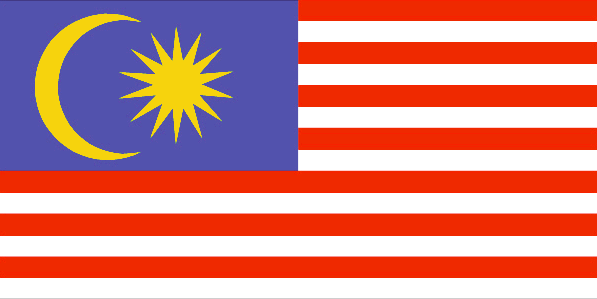Login form
Customs of Malaysia
 Marriage and Family
Marriage and Family
Some marriages are still arranged by families, and even when people are choosing marriage partners for themselves they usually do so in consultation with family members. A marriage is believed to join not only two people but also two families. Wedding customs and ceremonies vary according to religion.
The extended family is central to Malaysian life, and it is quite usual for two or more generations to live in the same house. Age is respected. However, modernization and urbanization have brought changes, and in urban areas nuclear families are more common, with members of the extended family living in the same city or neighborhood, but not the same house. Many couples are also choosing to have smaller families than has traditionally been the case.
Eating
Rice is the staple and fish is the main source of protein. Spices are used heavily in cooking. Local fruits include pineapples, bananas, papayas, and durians. The latter are large and oval-shaped and have a strong smell, but they are considered the tastiest and best of fruits. Malaysians enjoy dining out at restaurants or at street food markets. In
Eating customs vary among ethnic groups. Traditionally, Malays and Indians eat with their hands and with spoons and forks. Chinese eat with chopsticks, spoons, and forks. Some cultural groups refrain from eating certain foods—for example, observant Muslims do not eat pork or drink alcoholic beverages. Practicing Hindus and some Buddhists do not eat beef.
Socializing
Men usually greet each other with a handshake, but close friends use both hands to grasp the hand of the other. A slight bow or nod of the head is common when greeting an older person. Women and elderly persons seldom shake hands but may offer verbal greetings. Business cards are usually exchanged after an introduction; the ritual is important because business cards give a clear idea of someone’s status and therefore the correct level of courtesy that should be extended. The usual greeting to a non-Malay is Selamat pagi (“Good morning”). A casual greeting is Halo (“Hello”), or more common among the mostly Muslim population is Salaam Aleikum. Another frequently used phrase is Afa khabar (“How are you?” or “What’s new?”). A slight bow when greeting, leaving, or passing a group of people is a common courtesy—the equivalent in some other countries of saying “Excuse me.”
Visiting relatives and friends is an important part of Malaysian life, especially when one does not share a house with the extended family. Dropping by without prior arrangement is common, although most people in urban areas call in advance. Guests are often invited to the home for a meal or socializing. Many business relationships are formed through entertaining. When invited, persons are generally not expected to arrive on time, so it is not uncommon for scheduled events and appointments to start later than expected. Shoes should be removed when entering a home, and if refreshments are offered, one should accept so as not to give offense. Drinks are offered and received with both hands. At festival times, Malaysians follow the custom of the “open house,” when homes are open to all who come, irrespective of class, ethnicity, or status.
Recreation
Soccer and badminton are the country’s most popular sports. Others include field hockey, cricket, rugby, and table tennis. There are also facilities for swimming, tennis, cycling, volleyball, and squash. Traditional activities include sepaktakraw (a competitive team sport played with a rattan ball), gasing (which involves spinning heavy tops for long periods of time), and martial arts (particularly silat). Other popular activities include kite flying, watching television and movies, and visiting friends. A number of festivals provide recreational high points of the year.
Holidays and Celebrations
There are many holidays throughout the year in
The three chief Islamic holidays include Hari Raya Puasa, the three-day feast at the end of the month of Ramadan; Hari Raya Haji, the Feast of Sacrifice at the end of the pilgrimage to
Wesak Day (in May) commemorates the birth of Buddha. For the birth date of the Buddhist Goddess of Mercy, Kuan Yin, women make pilgrimages to her temples bearing flowers, fruit, and cakes, and pray for her goodwill.
Diwali is a Hindu festival in October or November that celebrates the triumph of Lord Krishna over a demon king. Hindus prepare for Deepavali by cleaning their homes and setting clay lamps along their windows and roofs to welcome Lakshmi, the Hindu goddess of wealth and prosperity. It is believed that Lakshmi will decline to bless a home that is not ablaze with lights to greet her.
The Dayak ethnic groups also celebrate various festivals that mark the harvest, honor the dead, and honor heroes. In May, the Kadazan (festivals) celebrate the harvest. There are also local holidays in each state.
Source: Encarta Interactive World Atlas

